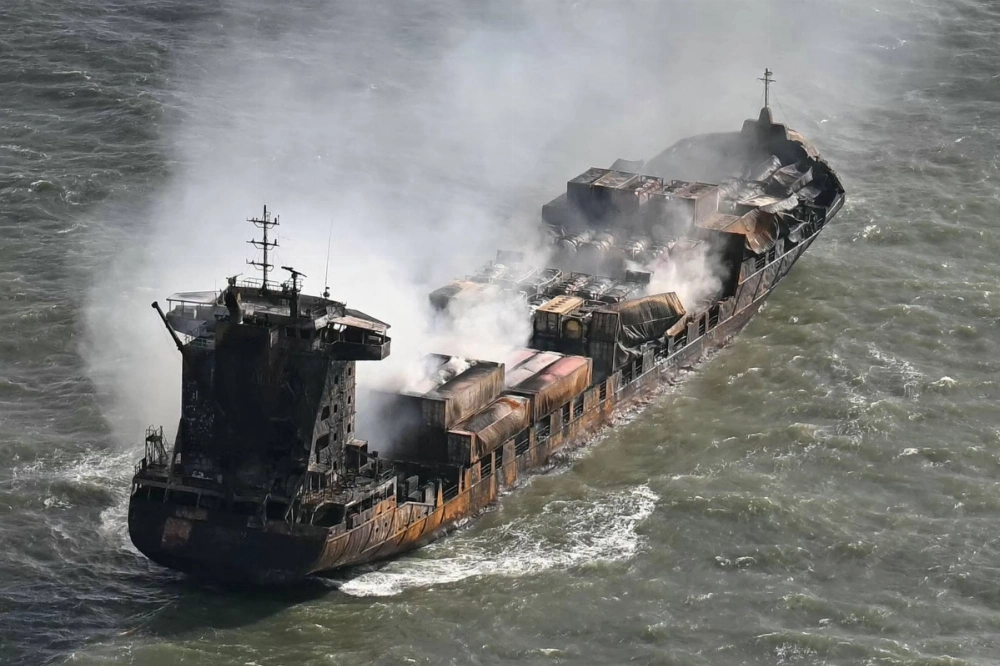British police on Tuesday arrested on suspicion of manslaughter the captain of a ship that crashed into a tanker in the North Sea, sparking a massive blaze and leaving one crew member missing, presumed dead.
Investigations have already started into what led the cargo ship to strike the tanker carrying jet fuel on Monday, as fears remained of possible harm to the area's marine and wildlife.
The U.K. Coastguard, which led the operation, rescued 36 people on Monday, including all of the 23 crew on the U.S.-flagged Stena Immaculate tanker, which had been chartered by the U.S. military.
















With your current subscription plan you can comment on stories. However, before writing your first comment, please create a display name in the Profile section of your subscriber account page.